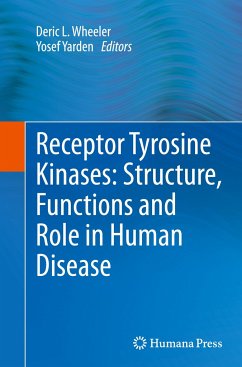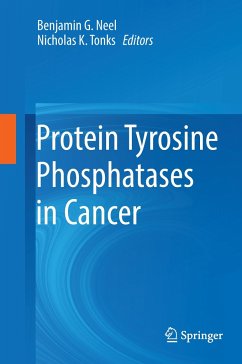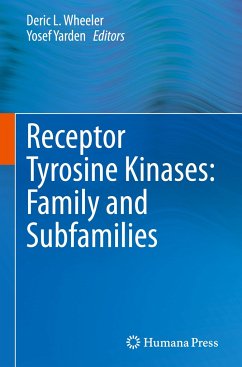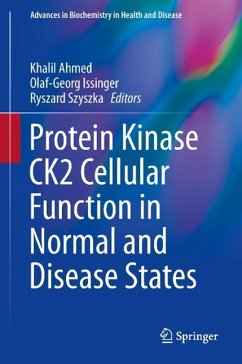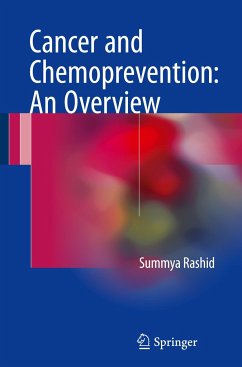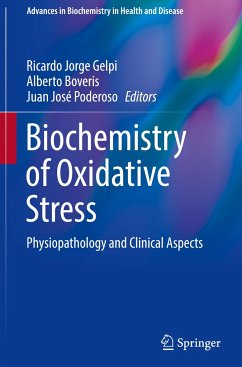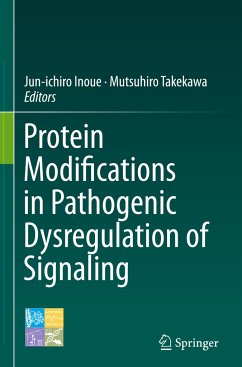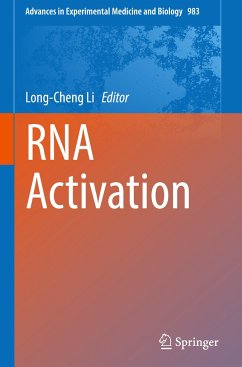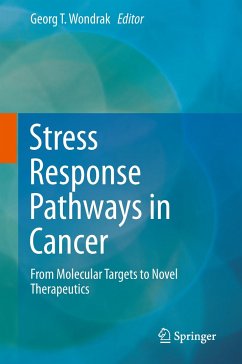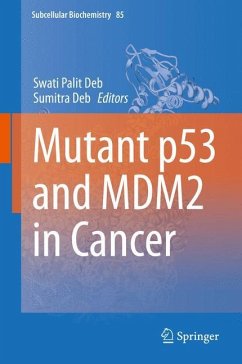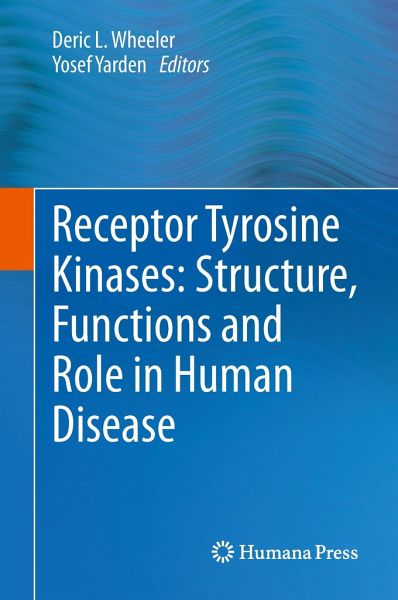
Receptor Tyrosine Kinases: Structure, Functions and Role in Human Disease

PAYBACK Punkte
57 °P sammeln!
Receptor Tyrosine Kinase: Structure, Functions and Role in Human Disease, for the first time, systematically covers the shared structural and functional features of the RTK family. Receptor Tyrosine Kinases (RTKs) play critical roles in embryogenesis, normal physiology and several diseases. And over the last decade they have become the Number 1 targets of cancer drugs. To be able to conduct fundamental research or to attempt to develop pharmacological agents able to enhance or intercept them, it is essential first to understand the evolutionary origin of the 58 RTKs and their roles in inverteb...
Receptor Tyrosine Kinase: Structure, Functions and Role in Human Disease, for the first time, systematically covers the shared structural and functional features of the RTK family. Receptor Tyrosine Kinases (RTKs) play critical roles in embryogenesis, normal physiology and several diseases. And over the last decade they have become the Number 1 targets of cancer drugs. To be able to conduct fundamental research or to attempt to develop pharmacological agents able to enhance or intercept them, it is essential first to understand the evolutionary origin of the 58 RTKs and their roles in invertebrates and in humans, as well as downstream signaling pathways. The assembly of chapters is written by experts and underscores commonalities between and among the RTKs. It is an ideal companion volume to The Receptor Tyrosine Kinase: Families and Subfamilies, which proceeds, family by family through all of the specific subfamilies of RTKs, along with their unique landmarks.




